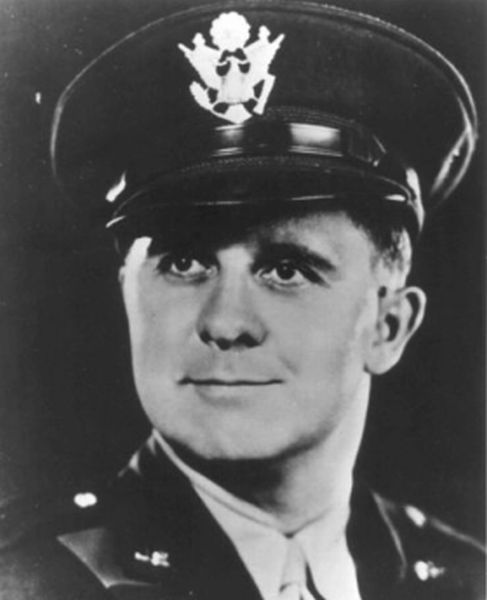Poling, Clark V.
- Date of birth:
- August 7th, 1910 (Columbus/Ohio, United States)
- Date of death:
- February 3rd, 1943 (North Atlantic Ocean)
- Mentioned on:
- East Coast Memorial U.S.A.
- Nationality:
- American
Biography
Clark V. Poling was born in Columbus, Ohio on 7th August 1910 as son of Daniel A. Poling and Susie Jane Vandersall. His father was an Evangelic minister. His childhood he stayed in Auburndale, Massachusetts and attended there the Whitney Public School. In 1918 his mother died. His father remarried in 1919 and became a Baptist. The Poling family moved to Poughkeepsie, Ner York, where young Clark attended the Oakwood High School. He was an excellent footbals player. Next he went to the Hope College in Michigan, followed by the Rutgers University, New Jersey, from which he graduated in 1933. After attending the Yale Divinity School (graduation in 1936), he became pastor of the First Reformed Church in Schenectady, New York. Here he settled with his wife Betty. The both fisrt had a son.
When the Second Worldwar broke out in 1941, Clark Poling volunteered as an Army Chaplain, just as his father did in World War One. His first occupation was a transport regiment in Mississippi. Late 1942 he was transferred to Camp Myles Standish in Taunton, Massachusetts and he attende the Chaplains School at the Harvard University. He he linked up with George L. Fox, Alexander D. Goode and John P. Washington. January 1943 he embarked on the U.S.A.T. Dorchester, destined for Greenland and the United Kingdom.
On 2nd February 1943 the ship was torpedoed by U-223. Clark V. Poling stayed, together with the other three chaplains with the men that could not leave the ship and died.
Three months after his death, his daughter, Susan Elisabeth, was born.
Do you have more information about this person? Inform us!
- Period:
- Second World War (1939-1945)
- Rank:
- First Lieutenant
- Unit:
- Army Chaplain Service
- Awarded on:
- 1944
"For extraordinary heroism in connection with military operations against an armed enemy, in action against enemy forces on 3 February 1943, in the North Atlantic Ocean. Chaplain Poling was one of four Army Chaplains aboard the U.S.A.T. Dorchester which was torpedoed in the North Atlantic. He and his comrades bravely brought order to panicked soldiers as the ship was sinking and, when no more life jackets were available, he gave up his own life jacket to another man. Chaplain Poling's intrepid actions, personal bravery and zealous devotion to duty at the cost of his life, exemplify the highest traditions of the military forces of the United States and reflect great credit upon himself, his unit, and the United States Army."
War Department, General Orders No. 93 (1944).
Awarded posthumously.
- Period:
- Second World War (1939-1945)
- Rank:
- First Lieutenant
- Unit:
- Army Chaplain Service
- Awarded on:
- January 18th, 1961
On 2nd February 1943 the U 223 spotted a convoy. The U boat closed in and fired a torpedo which struck the Dorchester shortly after midnight. Hundreds of men packed the decks of the rapidly sinking ship and scrambled for the lifeboats. Several of the lifeboats had been damaged and the four chaplains, Methodist Reverent George L. Fox, Rabbi Alexander D. Goode, Reformed Reverent Clark V. Poling and roman Church Fryer John P. Washington, began to organize frightened soldiers. They distributed life jackets from a locker and when the supply of life jackets ran out, each of the chaplains gave theirs to other soldiers. When the last lifeboats were away, the chaplains prayed with those unable to escape the sinking ship. 27 Minutes after the torpedo struck, the Dorchester disappeared below the waves with 672 men still aboard. The last anyone saw of the four chaplains, they were standing on the deck, arms linked and praying together.
- Period:
- Second World War (1939-1945)
- Rank:
- First Lieutenant
- Unit:
- Army Chaplain Service
Awarded posthumously.
- Period:
- Second World War (1939-1945)
Sources
- Photo 1: U.S. Government
- Photo: U.S. Government photo
- - The Four Chaplains Memorial Foundation
- Home of Heroes






